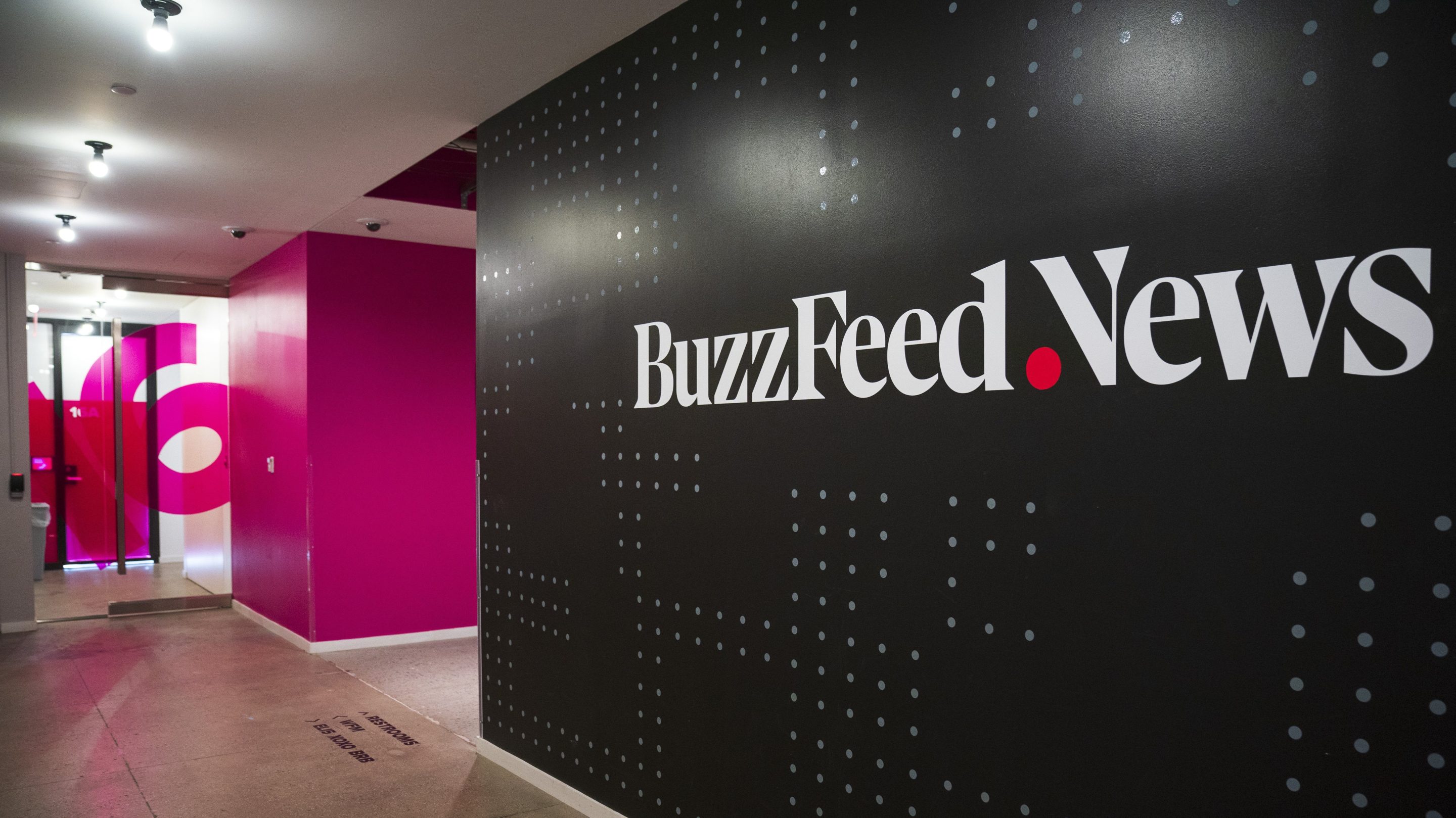Thursday was just another day for media workers, which meant more companies announcing more layoffs. Buzzfeed CEO Jonah Peretti announced that his company would shutter its entire news division along with cutting 15 percent of its staff, while Insider announced it would lay off 10 percent of its workers. Insider's president, Barbara Peng, cited "economic headwinds," a woefully vacuous phrase that any keen news editor would strike from a cub reporter's copy for being both showy and meaningless. Buzzfeed's Peretti also seemed moved to verbosity, although the closest he gets to any sort of meaningful language in his own memo is confessing that he "overinvested" in news, because "I love their work and mission so much." But, he inevitably continues, "this made me slow to accept that the big platforms wouldn't provide the distribution or financial support required to support premium, free journalism purpose-built for social media." It's a lot of words to say, essentially, "Facebook fucked us." That sentiment, like everything else, felt shopworn and insufficient and, most of all, familiar.
Buzzfeed News had been, once, portrayed as a beacon of what was possible in online media—real and meaningful journalistic work existing symbiotically with listicles and silly videos. While small-and-medium-sized newspapers bled out waves of people and institutional memory—what week didn't pass in the early 2010s without pontification about newspapers dying—Buzzfeed hired. And then Buzzfeed's journalists broke big stories. Buzzfeed was deemed by one venture capital firm to be more valuable than the Washington Post. Buzzfeed was nominated for, and eventually won, a Pulitzer Prize. The golden road to journalism's future, Buzzfeed seemed to exclaim, was paved with quizzes and OMG buttons. Insider, with its prestige journalism wrapped around (and occasionally obscured by) an endless stream of content geared toward nobody in particular, did not seem terribly far off. But as I pored over the many words of these very fancily educated CEOs—MIT for Peretti and Peng, Yale for Insider CEO Henry Blodget—I found myself stumbling over a question that none of them answered. Have any of them actually ever picked up a newsroom phone?
To be clear, I do not mean a desk line. I mean the tried-and-true general number, the one that's widely advertised, usually with some phrase along the lines of "If you would like to reach us, contact us at ..." There is nothing to glorify about having answered a newsroom phone; it is simply part of the job. The people on the other end of that line will want to know why their newspaper wasn't delivered today, or why their community event wasn't covered, or how to place an obit, or why the print keeps getting tinier—with some small number of people thrown in who, yes, actually do want to speak to a reporter. I can tell you that, from my time answering newsroom phones, there are exactly two things that would always, without fail, trigger a flood of calls: changing the TV guide, and changing the comics. Nothing else even came close. (Also, nobody ever called to complain about the online edition because, best I could tell, everyone assumed all online news sites are garbage.)
Of course this is anecdotal evidence, and I also did enough street reporting to know that people did read every section of the paper. But the relationship between a publication and its readers is a simple thing and can always be boiled down to the question of whether that publication is providing them with what they need and at a high-enough level of quantity and quality that they are willing to pay for it. People called about the TV guide because they needed it to know what was on TV; they called about the comics because they needed a good laugh after reading all that depressing news; they called about the obits because of the still-true maxim, "Journalism largely consists in saying 'Lord Jones is dead' to people who never knew Lord Jones was alive." They called about their newspaper not being delivered because, their many (often valid) complaints aside and regardless of what we'd done to the TV guide or Funky Winkerbean, they still wanted their newspaper. This is not terribly different from how any other business works. You find a product or a service people need, you provide it, you charge money for it at a rate that will cover your costs and then make a profit that you use to survive and, perhaps, also pay out to others so that they too can survive.
Anyone who has answered a newsroom phone could tell you that news would not make you rich. It was, at best, simply one of many reasons why anyone ever subscribed to any publication—and that's OK. I did not enter journalism to become rich. I would like for journalism to provide me with my basic needs and, yes, a few vacations would be nice too. This is, I suspect, what many, if not most, people want from their work—they will trade hours of their labor to be able to live comfortably and not have to worry about the next paycheck. But for a brief moment in time—and, in the grand scheme of the history of the printed word, it was very brief—running a newspaper could also make you rich; stockholders, it seems, would rather kill the product than accept a meatloaf dinner. Buzzfeed and its ilk, like Insider, sparkled and shined to investors because they promised, once again, to revitalize that dream: This humble, labor-intensive, hand-made business could make you rich again!
Every newsroom I have ever worked in made money; the issue, then, now and always, would be that stockholders had wanted more. Newspaper and TV reporters understood the twisted cycle of quarterly report to layoffs all too well. Now it has come for digital news as well. For all the shiny newness of the internet, it cannot fundamentally alter our basic human instincts, our glory nor our folly. Show me a news startup, and I'll show you another salesman who swears they have unlocked the secret code for getting fabulously rich off the news. That code is still a secret, but a salesman has got to dream. As always, it will be the journalists who pay the price when the salesman's promises turn out to be empty. The salesman is usually gone by then.







